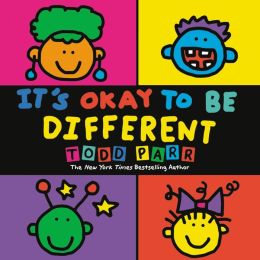Bullying Prevention Starts Here
As young students head back to school, Dana Rosenbloom, M.S. Ed, offers advice on teaching children to be more understanding and accepting of others.
Needless to say “bullying” has been in the news a lot lately. What’s been happening is nothing short of tragic. It would seem to me that whether you have a child or are educating children, your goal is to give them the support and tools they need so that they become positive, active contributors to our global community.
To do this, we need to teach children tolerance and acceptance.
Unfortunately, we begin to see cliques and exclusion in groups of children as young as 3 years old. This is when we need to begin educating young children, both explicitly and by modeling inclusive behaviors. Schools can model this idea by including children with differing abilities and needs whose development they believe they can successfully support. Aunties can model acceptance by chatting with all of the other parents, guardians, and caretakers, and not creating cliques. Teachers can model this by being aware of showcasing, and encouraging each child’s strengths within their classrooms. Encourage children to play with many different friends.
The truth is, we can’t force children to create exceptionally close relationships with all children, but we can teach them to be tolerant and respectful. Two books I love to use with the early childhood set to teach acceptance, tolerance, and inclusion are Chrysanthemum by Kevin Henkes and We All Sing With the Same Voice by J. Philip Miller and Shephard M. Greene.


Chrysanthemum offers a great jumping off point for discussing the value of being different and the choices children can make about the way they react to and treat others. We All Sing With the Same Voice is a wonderful story and song with beautiful illustrations that talks about all different kinds of people and families. Both books offer a platform for talking to children about this topic. For children just beginning to think about tolerance and acceptance Todd Parr’s It’s Okay To Be Different is a wonderful choice.

Whatever materials, activities, or books you choose, start them young. Along with other family “rules” include respect. When you witness someone being bullied or someone being mean, use it as a teachable moment. Ask your niece or nephew what they just saw. Ask them what they might have done differently. Ask them how they think the children involved are feeling. You can also do this while you are reading with them. Close the book and ask the same questions. Help your nieces and nephews start thinking about and exhibiting tolerant, accepting and inclusive behaviors. As a Savvy Auntie, you can have an impact!
Dana Rosenbloom, M.S. Ed, is owner and therapist at Dana's Kids, a business dedicated to providing support and education for families with both typically-developing children, as well as those with special needs, who are struggling with developmental challenges.
Published: September 10, 2013